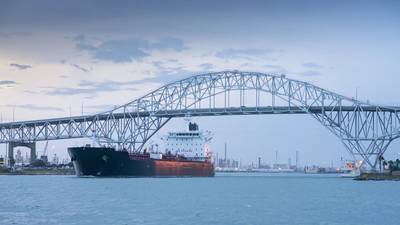US Considering Jones Act Waivers Amid Colonial Pipeline Shutdown
The Transportation Department said on Tuesday it was evaluating whether a temporary waiver of the Jones Act is needed to ensure sufficient gasoline supply to some U.S. states after the ransomware attack on Colonial Pipeline.
"The U.S. Department of Transportation (USDOT) has started the work needed to enable consideration of a temporary and targeted waiver of the Jones Act," the department said. The Jones Act requires goods moved between U.S. ports to be carried by ships built domestically and staffed by U.S. crews.
In 2017, the Trump administration waived Jones Act restrictions to help get fuel and supplies to storm-ravaged Puerto Rico.
The Transportation Department's Maritime Administration on Tuesday initiated a survey of available vessels to evaluate what assets are available "to carry petroleum products within the Gulf, and from the Gulf up the Eastern Seaboard."
The agency added the step "is being taken to determine whether there is sufficient capacity on Jones Act-qualified vessels to carry the product and to determine if a waiver is warranted."
Authority to receive requests for and to approve waivers to the Jones Act belongs to the Department of Homeland Security (DHS).
"That need is not necessarily yet confirmed," but authorities want to be able to act immediately, DHS Secretary Alejandro Mayorkas said at a White House news briefing.
Shipbrokers said a flurry of Jones Act tankers was provisionally booked over the weekend to ship fuel from the Gulf Coast to the East Coast to make up for supply shortfalls after Colonial Pipeline shut its system on Friday. These vessels are typically more expensive to charter than foreign-flagged vessels due to limited availability.
On Sunday, USDOT issued a temporary hours of service exemption for transporting gasoline, diesel, jet fuel and other refined petroleum products to 17 states and the District of Columbia. The department said on Tuesday it was adding West Virginia to the states covered.
The Federal Railroad Administration is canvassing rail operators to determine their capacity to help transport fuel from ports inland and if there are steps FRA could take to increase capacity.
In Virginia, Governor Ralph Northam declared a state of emergency. The southwestern part of the state is directly affected by the Colonial Pipeline disruption, Energy Secretary Jennifer Granholm noted on Tuesday.
Northam said the declaration will help Virginia "prepare for any potential supply shortages and ensure Virginia motorists have access to fuel as we respond to this evolving situation.”
(Reporting by Doina Chiacu, David Shepardson and Susan Heavey; Additional reporting by Devika Krishna Kumar; Editing by Chizu Nomiyama, Matthew Lewis and Marguerita Choy)












